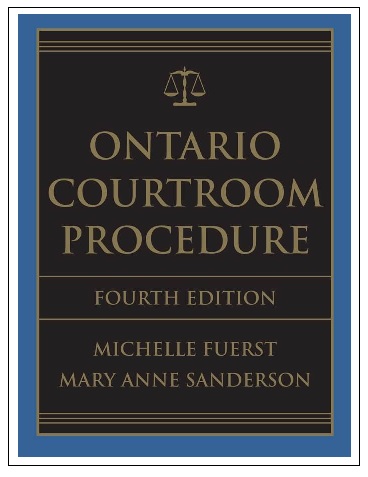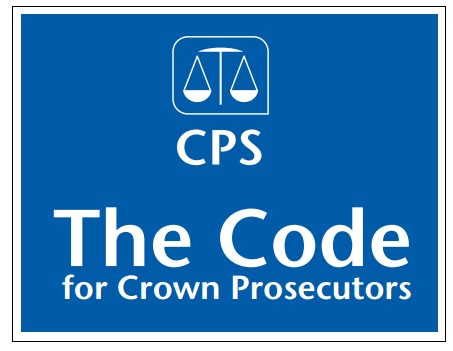True and Fascinating Canadian History

A Mystery of the Mounties:
The Price for a Solid Rock Reputation
by J. J. Healy

According to historians, the game of pool was once played by lofty elites to idle the time away; European kings, queens, and nobility. But for years, and for reasons still unclear, pool gained a questionable reputation -- today, the game is passed off as somewhat shady.
Pool players argue this overcast assessment is not fair -- they claim pool requires certain skills with a cue stick, plus a fair knowledge of geometry, and cheats are not encouraged to play. But still, the game’s unsavoury reputation is hard to shake off, and it certainly has been that way ever since boyhood was discovered.
My parents associated pool to prison. They didn’t say so out loud, but they were afraid that our family’s reputation might be tarnished, so they made me promise to avoid the pool room and instead to concentrate solely on my school room. My mother and father worried about me. Parents all think alike, even today.

At a small dinner party not long ago, I took an informal survey among three neighbourhood new mothers. I simply popped this quiz, “Would you prefer your children to laze about in a pool room or study in a school room?” All three moms sang out, “Avoid pool and stay in school!” No one was too surprised at their response. The moms might have had dreamy leftover memories of Paul Newman’s movie ‘The Hustler’ but yet, according to many parents, the game’s reputation still wallows near to society’s underside. For better or worse, the reputation of pool is one of shadowy dens, vice and corruption.
But, it’s not only pool which suffers a bad reputation. In recent years, news reports seem to show a marked increase in dishonesty among Canadian police officers, and their criminality has given the entire profession an obvious black and bruised eye. It’s only a select few crooked police officers who make the headlines, but a few bad apples are a few too many. Just this week, Canadian Press (2018) headlines screamed aloud when four Peel Regional police officers were charged with theft, obstruction and perjury in relation to a drug investigation where an accused drug dealer’s sculpture was stolen from a storage locker. The theft by the police officers was caught on video, and their criminality was indisputable.

In court, the reputation of the four police officers was labelled sully, and their criminality lead to all prosecution charges against the drug dealer being withdrawn. If the intended trial were to have ever reached the police witness stage, the credibility of the foursome would be deemed worthless based on the theft -- it was a sour twist within the legal proceedings which neither the Crown or the court in Peel had expected.
The reputation of a police officer is supposed to be beyond reproach and kept as shiny as a cue ball, it’s self advertized that way from the days when one is a cadet. However, the unexpected situation in Peel County caused repercussions in court which were damming, unthinkable and far reaching. Legal minds and the Chief of Peel Police could not believe what they were watching on video. Court proceedings went into a swirling tail spin.

The judge in the case was taken off guard, she noted it was, “highly likely that he, the accused, would otherwise have been found guilty.” She also addressed the criminal conduct of the four officers, the judge said it was, “not only profoundly disappointing, but shocking.” The calamity created by the dishonest police officers caused a cloud of poisonous volcanic ash to envelope the entire police profession across the country. The theft caused embarrassment to all honest police officers, and it raised mistrust from within the community.
To fully understand the reasons for the criminal case against the drug dealer in Peel to collapse, one has to go back to R. v. McNeil in 2009. To the degree that a police officer’s reputation affects impending court cases will become very evident in “The Mystery of the Mounties: The Price of a Solid Rock Reputation.” There’s a lesson here for all police officers too.
In R. v. McNeil, it was found that any tinge of criminality in a police officer’s past will diminish the police officer’s credibility, and this tie-in [criminality to credibility] unquestionably affects any court case which the offending police officer might have touched. That’s the short version.

For a fuller understanding of the main issues, R. v. McNeil is summarized here. The accused Lawrence McNeil, was first arrested for drug offences by Constable Rodney Hackett and other members of the Barrie Police Service. McNeil was subsequently prosecuted by the federal Crown and convicted on multiple drug charges, including possession of marijuana and cocaine for the purpose of trafficking.
Constable Hackett was the Crown’s main witness in the case against McNeil, and he was sole witness who testified to the reasonable grounds supporting his search and arrest of McNeil. Most importantly, the trial judge’s ultimate finding that McNeil admitted to possession of marijuana and cocaine was for the purpose of trafficking turned squarely on Constable Hackett’s credibility. In McNeil’s mind, the drug charges were very serious, and the importance of Constable Hackett’s direct evidence against McNeil could not be understated.
Following his guilty plea, McNeil’s conviction stood -- if only for the time being. As it turned out, just prior to his sentencing, McNeil learned that Constable Hackett too was criminally charged with drug-related misconduct, which also resulted in internal disciplinary proceedings under the Ontario Police Act.
Interestingly, and as an aside, in the days prior to R. v. McNeil, it had never dawned on the court, or defence lawyers, or an accused to question the credibility of police officers as witnesses. To suggest that serving police officers or investigators were somehow involved in criminality or organizational police misconduct would be preposterous. Not so today. Not so anymore.
The discovery of Constable Hackett criminal activities was most compelling to the accused McNeil, so he entered a motion before the Ontario Court of Appeal (ONCA) seeking production of all documents related to Hackett’s misconduct. McNeil claimed that the material was necessary in order for him to bring forth an application to introduce fresh evidence in the appeal from his conviction. But, the Barrie Police Service and the provincial Crown in this case refused to produce and their position was supported by the federal Crown as well.

Nevertheless, the ONCA ordered the production of the criminal investigation files relating to the charges against Constable Hackett. Hackett plead guilty to one of the drug-related charges, and now the police officer’s credibility and his involvement with McNeil’s case was tarnished and tainted. Hackett’s fate with criminality was decided, and it turned out to be a huge advantage to McNeil. At McNeil’s appeal hearing, evidence of Hackett’s conviction was admitted and the convictions against McNeil were set aside. The Crown decided not re-prosecuted McNeil -- it would have done little good due to Hackett’s criminal past.
For a definitive ruling, the ONCA then proceeded with an appeal to the Supreme Court of Canada (SCC); essentially, the two principle issues to be decided were, a) to what degree is a police officer’s credibility affected if the police officer was convicted of a criminal offence, and b) must discipline records of a police officer be produced for the benefit of an accused to assist them in making full answer and defence? The decision by the SCC was clear, and not at all surprising -- the ruling put police officers with a criminal record or serious misconduct at a serious professional disadvantage.

The following three critical points from the SCC ruling were summarized by author Jakki Warkentin, who wrote, “First, the police have a duty to participate in this disclosure process, since it is the obligation of the police to disclose all material related to its investigation of the accused to the Crown,
Second, the disclosure package that must be delivered to the Crown should contain any records that relate to findings of serious misconduct by police officers involved in the investigation where this misconduct could “reasonably impact” on the case against the accused or relate to the investigation, and third, the onus is on the Crown to justify the non-disclosure of any material in its possession.”
All in all, in the R. v. McNeil case, everyone came out a winner except for police officers who are mixed up in criminality or misconduct; the Crown is obligated to produce records of police officers, and share them with defence lawyers and, accused persons have the right to make “full answer and defence.” Jakki Warkentin, also wrote that after R. v. McNeil, “The whole process enhances the principle of transparency in the courts by allowing for a more free-flow of information, while still implementing safeguards for the protection of privacy interests.” Above all, the new rules ensure fairness all around.

One often hears in legal circles that fruits of a poison tree cannot be tendered into evidence. Police officers who indulge in criminality are the same officers who are mingling about in the forest of poison trees, and are fondling the poison fruit all the while standing perilously on the branches of the poison tree.
Police officers are treated no differently in Canada -- like everyone else, they are subject to prosecution under the Criminal Code if they are involved in illegal activity. Constable Hackett was hooked on cocaine. According to the Toronto Sun, after appearing in court, Hackett pleaded guilty and handed in his badge. The judge told Hackett, “You have brought shame to yourself and to the Barrie Police Service.”
The lesson for police officers is simple; your reputation is intertwined with your credibility as a witness, and if your reputation is stigmatized then your effectiveness as a functional police officer is restricted, and your career is likely over.
But, the real mystery to this whole sad saga is this, “What do you say to your spouse, family and friends once you are charged for a criminal offence?”
In policing and elsewhere, the price for a solid rock reputation is honesty.
The end.
Reporting from the Fort,
J. J. Healy
May 7, 2018
Cameron, Peter. Canadian Press. May 4, 2018. Peel Regional Police Officers Charged After Statue Allegedly Stolen From Accused Drug Dealer: The four have each been charged with single counts of theft under $5,000 and obstructing police, and two counts of perjury.
Nova Scotia Prosecution Service. Disclosure of police misconduct.
Disclosure policy - Amendments relating to R. v. McNeil)
R. v. McNeil. 2009 SCC 3, [2009] 1 S.C.R. 66
Warkentin, Jakki. R v McNeil: The Duty to Disclose Police Misconduct Records
The Toronto Sun. February 2, 2007. Cop Addict Turns in Badge.





